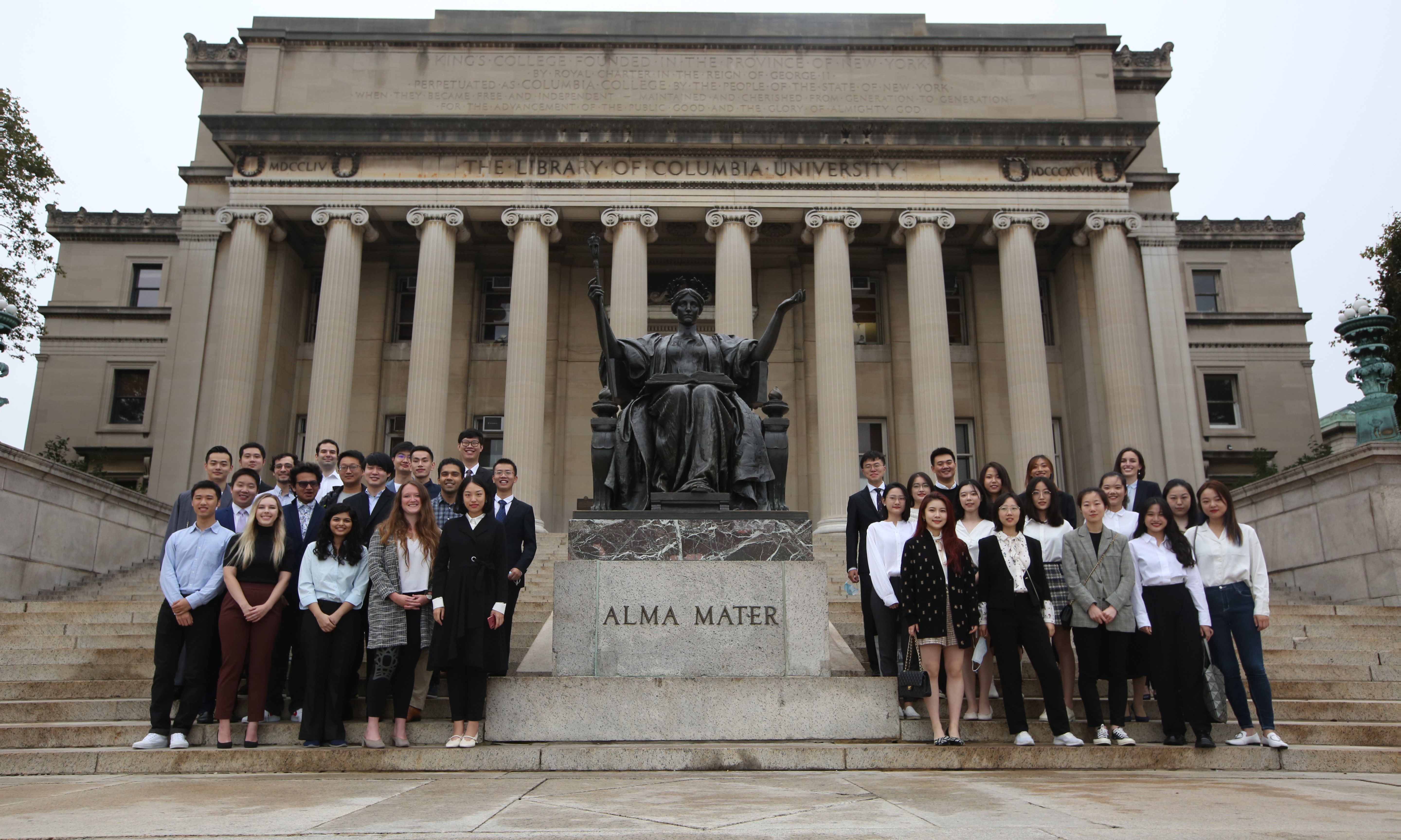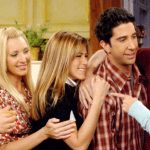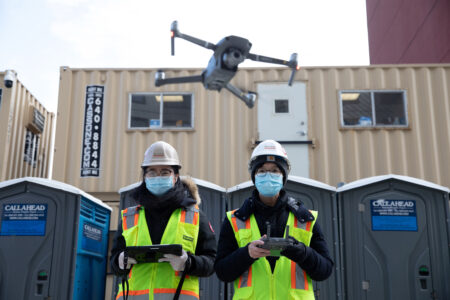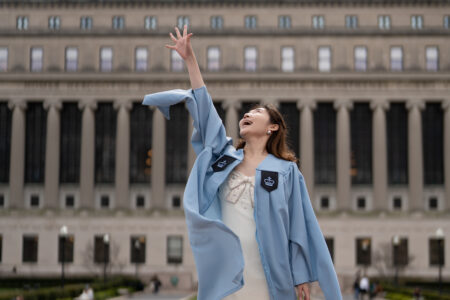For Shuo Huang from Shenzhen, China, the Master of Arts (MA) in Economics program at Columbia University is the “crème de la crème.”
He fell in love with economics while pursuing an undergraduate degree in business and finance. At that time, he was missing a few courses needed to pursue a PhD. This was when Columbia’s MA stood out to him. It was “absolutely perfect” for him for several reasons.
“Studying here meant taking core courses at a university with so many superstars in Economics. I get starry-eyed every time,” he says. “You can take classes taught by faculty who are leaders in their respective fields and whose lectures are enthralling.”
A self-described “extremely dedicated photographer,” Huang found the allure of New York City unbeatable, along with its vibrant atmosphere. “We all know how fast-paced NYC is, and having lived extensively in China as well as being young, passionate, and dedicated, NYC just really resonated with me,” says Huang.
The MA in Economics will boost your knowledge of economic theory and its applications. It provides a technical and rigorous approach to the study of economics, with a suite of electives to help you reach multiple academic and professional goals.
“The opportunities for professionals with graduate training in economics have continued to grow, while both the requirements for admission to doctoral studies and the time required to obtain a PhD in Economics have also notably increased over the past few decades,” shares Department Chair and Professor, Michael Woodford. “As a result, the need for a separate MA program has become clearer, both as a way of preparing students for doctoral studies at institutions like Columbia and as a terminal degree for the many students who need graduate training in economics but do not seek an academic career.”
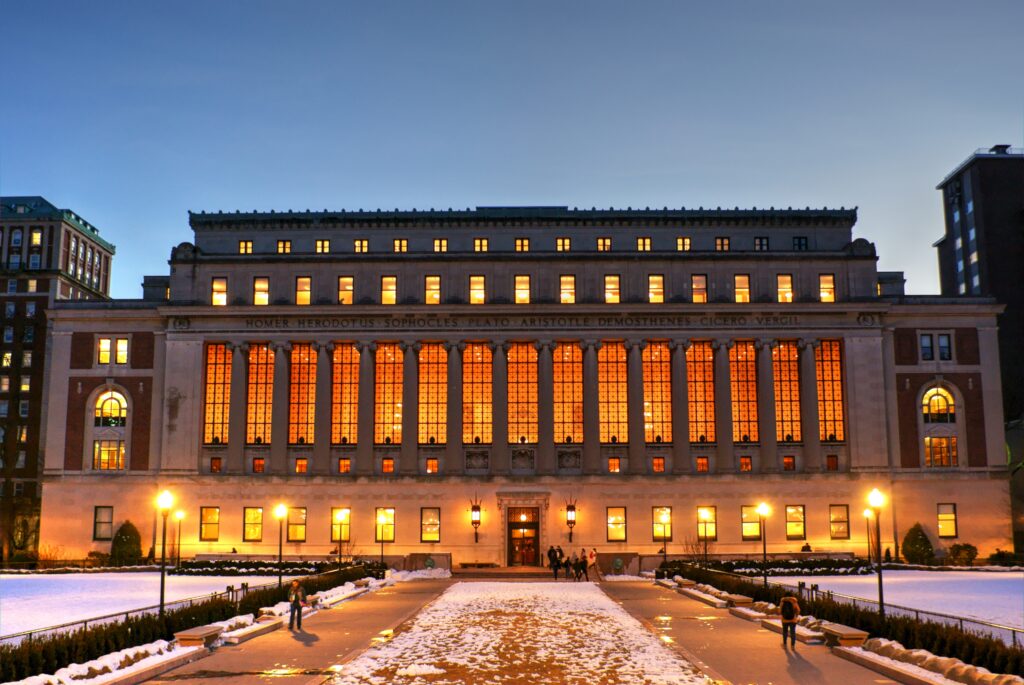
Columbia University’s location in the Upper West Side of Manhattan unlocks a unique blend of opportunities in both academia and the private sector. Source: Columbia University
The program is constantly refined to ensure it remains at the forefront of current economic thought. Relevance is achieved through ongoing feedback from students, alumni, and employers. For instance, early in the program, the department began integrating machine learning into its classes in response to such feedback. Elective courses in applied industrial organization and financial economics have also been introduced to cater to the diverse interests and needs of students.
All opinions matter at an institution that truly cares. The Department of Economics at Columbia prides itself on its international student body and its commitment to inclusivity. Regular consultations with the Master of Economics Student Association and periodic anonymous climate surveys are conducted to proactively identify and address any concerns.
“In addition to the great career service of our Graduate School, we keep close ties to our alumni and their employers, and we help the students organize job fairs and recruitment events,” shares MA in Economics program director Professor Bernard Salanié. “I personally make sure that the students who plan to apply to a PhD program get plenty of advice and support from me and our distinguished faculty.”
Professor Salanié is proud of his program’s placement record, whether in academia, public institutions, or the private sector. These outcomes are achieved across the US and around the world; however, many students choose to build their careers close to the university that made them, and it’s not hard to understand why.
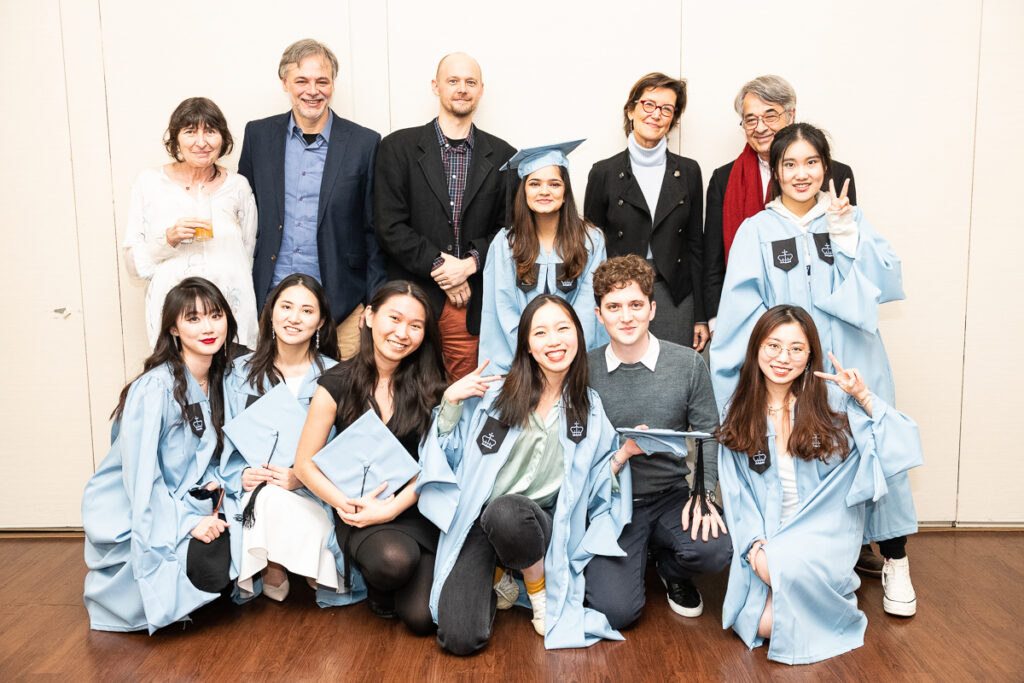
“Our program is unusual in that it is built around a core curriculum that mimics the first year of our PhD program and is taught at a similar level of rigor,” shares Professor Salanié. Source: Columbia University
Being located in NYC gives Columbia “a doubled magic.” As a student here, you gain access to the best of both worlds: the cutting-edge teaching and research at the University and the vibrant energy of a major global metropolis and economic center. “As one of the world’s most cosmopolitan cities, a leading financial center, and a hotbed of innovation, it offers phenomenal opportunities to our students,” says Salanié. “It is not just the wealth of internships or networking options; it is also a ‘marketplace of ideas’ to which students are exposed and where they can learn so much.”
Huang is living a photographer’s dream, capturing the city’s ever-changing seasons and iconic landscapes. From the fir trees and cardinals in winter to the cherry blossoms and migrating birds in spring, there’s just so much life to color his lens here.
Another thing he’s seeing? A future with greater potential than before. “It is very easy to connect with PhD students as well as attend seminars in top institutions such as Columbia, New York University, and Princeton University,” Huang says. “This is an advantage no other MA in Economics program can match.”
Follow Columbia University’s Graduate School of Arts and Sciences on Facebook, X and LinkedIn

